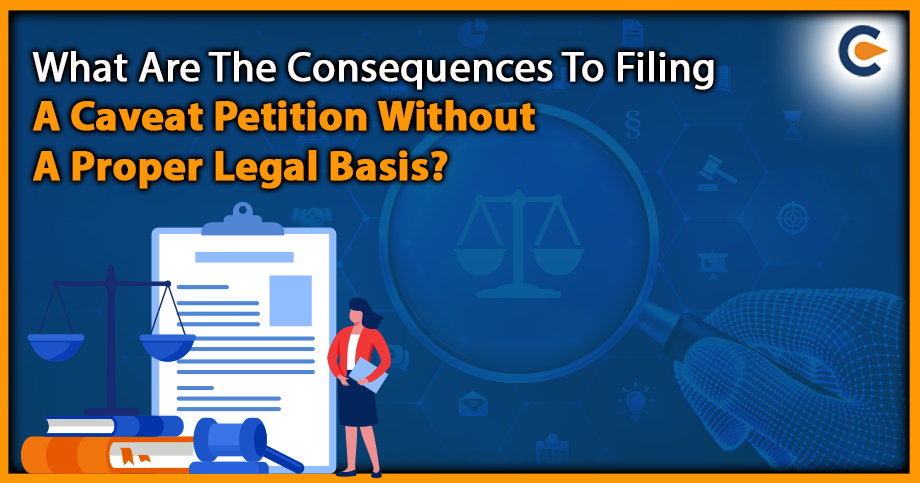The laws of different countries are framed differently based on a variety of factors, including culture, demographics, socio-economics, etc. But if you look at what the law is trying to achieve at the end of the day, you will realize that all laws are based on the concept of natural justice or common sense law. This is true at least as far as dispute resolution and civil law is concerned.
What Is A Caveat Application?
A caveat application is a legal document that can be filed with a court or probate registry to prevent someone else from obtaining a grant of probate or letters of administration. It is usually made by someone who has an interest in the estate of a deceased person but who is not the executor or administrator. There are several reasons why a person may choose to file a caveat application. In this blog post, we will explore the three basic purposes of a caveat application.
There are three basic purposes served by caveats:
To Preserve the Status Quo
The first purpose of a caveat application is to preserve the status quo. When a person dies and their assets and liabilities become part of their estate. If a grant of probate or letters of administration is obtained by someone who does not have the legal right to manage the estate, it can lead to the assets being distributed in a way that is not in accordance with the deceased person’s wishes. By filing a caveat application, a person can prevent this from happening and ensure that the estate is managed in accordance with the law.
For example, if there is a will that is being contested, It can prevent the will from being probated until the dispute is resolved. This can give the person filing the caveat application the opportunity to investigate the validity of the will and gather evidence to support their case.
Similarly, if there are questions about the distribution of assets, It can prevent the assets from being distributed until the matter is resolved. This can give the person filing the caveat application the opportunity to ensure that assets are distributed in accordance with the deceased person’s wishes.
To Protect the Interests of Beneficiaries
The second purpose of a caveat application is to protect the interests of beneficiaries. If a person believes that they are entitled to a share of the estate, they can file a caveat application to prevent someone else from obtaining a grant of probate/letters of administration. This can be particularly important if there is a dispute over the validity of a will or if there are questions about the distribution of assets.
For example: if a person believes that they are entitled to a share of an estate but the executor or administrator is not including them in the distribution of assets, they can file a caveat application to prevent the distribution until the matter is resolved. This can give the person filing the caveat application the opportunity to ensure that they receive their fair share of the estate.
Similarly, if there are concerns about the validity of a will, a person can file a caveat application to prevent the will from being probated until the matter is resolved. This can give the person filing the caveat application the opportunity to investigate the validity of the will and gather evidence to support their case.
To Gain Time to Investigate
The third purpose of it’s to gain time to investigate. When a person dies, it can take time to gather all the necessary information about their assets and liabilities. By filing a caveat application, a person can gain time to investigate and gather the evidence before a grant of probate/letters of administration are obtained. This can be particularly important if there are concerns about the validity of a will or if there are questions about the deceased person’s assets or liabilities.
For example, if there are questions about the deceased person’s assets or liabilities, a person can file a caveat application to prevent the distribution of assets until the matter is resolved. This can give the person filing the caveat application the opportunity to investigate the deceased person’s finances and ensure that all assets and liabilities are accounted for.
Similarly, if there are concerns about the validity of a will, a person can file a caveat application to prevent the will from being probated until the matter is resolved. This can give the person filing the caveat application the opportunity to investigate the validity of the will and gather evidence to support their case.
Conclusion
In conclusion, it can be a powerful tool for protecting the interests of beneficiaries and ensuring that the estate of a deceased person is managed in accordance with the law. Whether you are concerned about the validity of a will, the distribution of assets, or the management of the estate, filing a it can help you gain time to investigate and gather evidence before a grant of probate or letters of administration is obtained.
It is important to note that filing a caveat application is a serious matter and should not be taken lightly. It is always best to seek legal advice[1] before filing a caveat application to ensure that you understand your rights and obligations under the law. An experienced lawyer can help you determine whether it is appropriate in your circumstances and can guide you through the process of filing and defending it if necessary.











